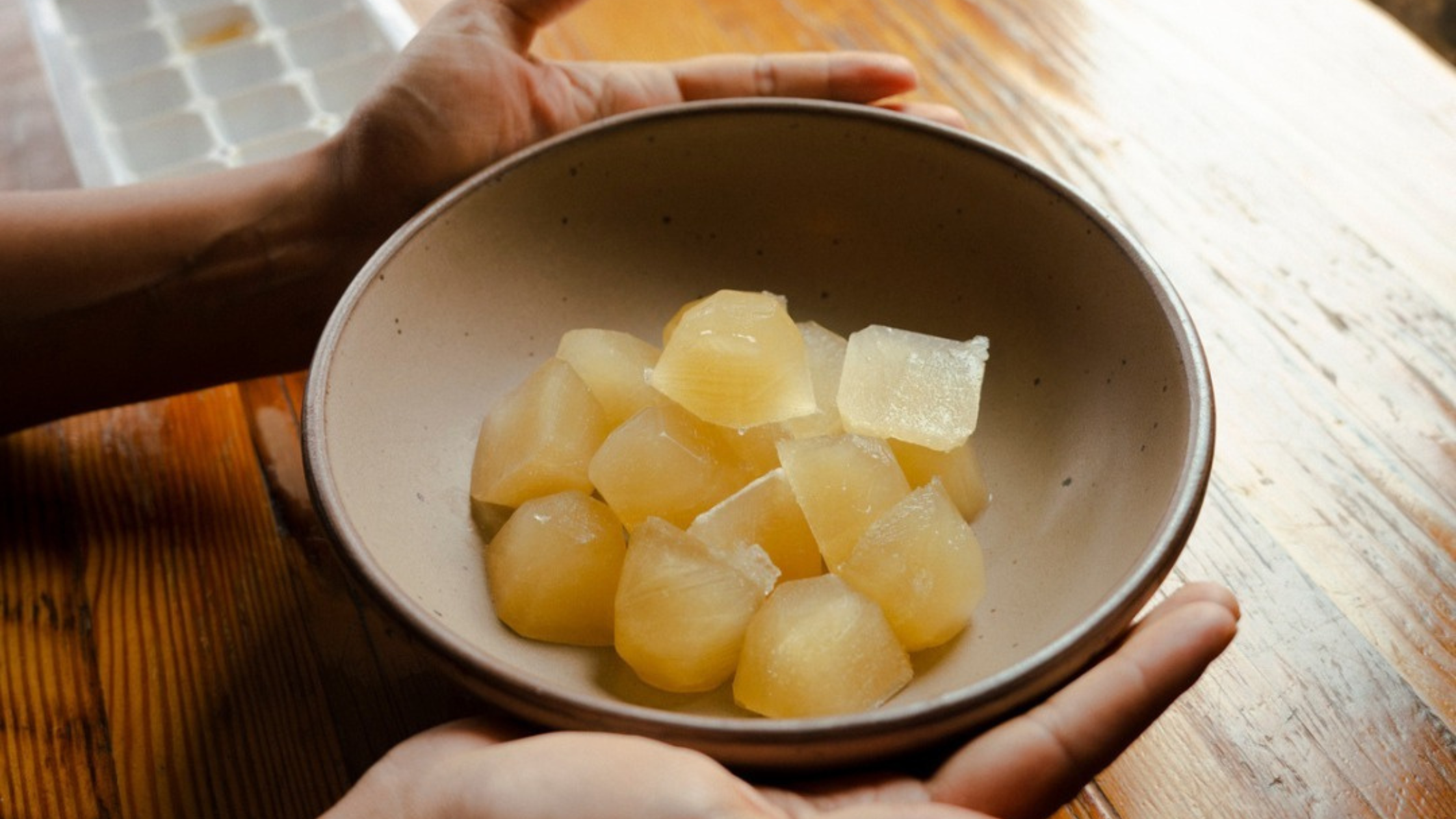The Value of Healthy Food: Why Bone Broth Is a Wonderful Option for Babies
Bone broth stands out as a nutrient-dense choice, offering vital vitamins and minerals that support development and development. What are the ideal methods to introduce bone broth to your little one?
Nutritional Perks of Bone Broth for Newborns
When you introduce bone broth to your baby's diet regimen, you're giving a nutrient-dense food that offers numerous wellness advantages. Loaded with necessary nutrients, bone broth consists of calcium, magnesium, and phosphorus, which support your child's expanding bones. It's also rich in collagen, helping in the development of healthy and balanced skin, joints, and connective cells.
Furthermore, bone broth is an outstanding resource of amino acids like glycine and proline, which play a considerable duty in overall growth and muscle mass development. These nutrients aid advertise a strong body immune system, setting a strong foundation for your infant's health.
In addition, bone broth is simple to absorb, making it a gentle alternative for your kid. By incorporating this wholesome food right into their meals, you're guaranteeing they obtain vital nutrients required for their overall health. So, go in advance and make bone broth a staple in your infant's diet regimen!
How Bone Broth Sustains Digestion
Bone broth is loaded with vital nutrients that can actually profit your infant's digestion. It advertises digestive tract wellness and aids with nutrient absorption, making it a terrific enhancement to their diet plan. By incorporating bone broth, you're establishing the stage for a much healthier digestive system.
Nutrient-Rich Structure
One of the most nutrient-rich foods you can introduce to your baby's diet is bone broth, which is loaded with crucial minerals and amino acids that sustain healthy food digestion. Rich in collagen, bone broth aids reinforce your baby's intestine cellular lining, making it easier for their body to take in nutrients. By integrating bone broth into your child's dishes, you're offering them a wholesome food that supports their gastrointestinal system effectively.
Advertises Intestine Health And Wellness
As you present bone broth into your infant's diet regimen, you'll discover it not just nurtures however also advertises gut wellness effectively. Rich in jelly, bone broth helps relieve the gastrointestinal system, reducing inflammation and sustaining a healthy digestive tract cellular lining. Additionally, the amino acids located in bone broth, such as glycine, help in digestion and can help stop common stomach troubles.
Aids Nutrient Absorption
Introducing bone broth not only supports gut health yet also plays a significant role in assisting vitamins and mineral absorption. When you offer your baby bone broth, you're supplying a rich source of minerals and amino acids that enhance their gastrointestinal procedures. The gelatin in bone broth helps to relieve the intestine cellular lining, improving its capacity to absorb crucial nutrients.
Enhancing the Body Immune System With Bone Broth

By incorporating bone broth into your baby's diet regimen, you're giving an all-natural resource of sustenance that advertises health. Take into consideration making bone broth a staple in your baby's meals, as it can play a crucial duty in their immune health and advancement.
Easy Ways to Integrate Bone Broth Into Infant's Diet
Including bone broth into your child's diet can be straightforward and satisfying. Begin by mixing a percentage of bone broth into pureed veggies or fruits. This adds taste and nutrients without frustrating your little one. You can also use bone broth as a base for soups or stews that you plan for the family members, guaranteeing your baby obtains a preference of delicious, healthier meals.
If your infant enjoys grains, think about cooking rice or quinoa in bone broth rather of water for extra nutrients. These methods will aid your infant enjoy the benefits of bone broth effortlessly!
Homemade vs. Store-Bought Bone Broth: What to Choose
Which is better for your child: homemade or store-bought bone broth? Home made bone broth uses you total control over the active ingredients.
On the various other hand, store-bought choices are practical and save you time. Nonetheless, they often have chemicals and may not match the depth of taste and nutrition you get from homemade find out here broth. If you decide for store-bought, seek brands that are organic and devoid of additives.
Ultimately, if you have the moment and resources, homemade bone broth is the exceptional choice for your child's Website health and wellness. If you're brief on time, select a top quality store-bought choice as a backup.
Age-Appropriate Bone Broth Offering Recommendations
As your baby grows, it's important to customize bone broth serving pointers to their developmental stage. For infants around six months, start with a few does of diluted bone broth. Mix it with water or bust milk to make it less complicated for them to digest. As they become accustomed to flavors, you can gradually introduce thicker broth by minimizing the dilution.
By the time your little one is around a year old, take into consideration providing bone broth as a standalone beverage or mixing it right into soups and stews. Simply make certain to maintain the broth reduced in salt.
Other Healthy And Balanced Foods to Couple With Bone Broth for Infants
When you're wanting to improve the nutritional value of bone broth for your baby, consider coupling it with nutrient-dense vegetables like carrots and spinach. Whole grain choices, such as quinoa or wild rice, can also add texture and fiber. Additionally, including healthy protein sources like shredded chicken or lentils will round out the dish nicely.

Nutrient-Dense Veggies
Nutrient-dense vegetables are a great enhancement to bone broth for babies, improving both flavor and nutrition. Incorporating veggies like carrots, spinach, and sweet potatoes can improve the vitamin and mineral content of your broth.
You can conveniently blend these veggies right into the broth or offer them as soft, cooked pieces together company website with it. This not only presents new flavors yet also urges your little one to delight in a selection of nutrients. By coupling nutrient-dense vegetables with bone broth, you're laying the structure for a healthy diet plan right from the beginning.
Whole Grain Options

Healthy And Balanced Protein Sources
Bone broth sets incredibly with different healthy and balanced protein resources, better boosting your baby's diet. Eggs, when introduced securely, are an additional terrific selection; they're functional and loaded with nutrients. By incorporating these healthy protein sources with bone broth, you're offering your infant a balanced, beneficial dish that supports their growth and advancement.
Frequently Asked Inquiries
Can Bone Broth Cause Sensitive Reactions in Newborns?
Yes, bone broth can trigger allergies in babies, especially if they're delicate to particular ingredients. Always consult your doctor before presenting new foods and monitor for any type of indicators of allergies after feeding.
How Should Bone Broth Be Saved for Infants?
You must keep bone broth in airtight containers, either in the refrigerator for as much as a week or in the freezer for up to 3 months. chicken bone broth. Always thaw it effectively before offering to your baby
Is It Safe to Give Bone Broth to Premature Babies?
It's important to consult your pediatrician before presenting bone broth to premature infants. They'll analyze your child's specific wellness demands and assure it's safe, considering their unique dietary requirements and developmental phase. Constantly prioritize skilled recommendations.
What Are the Indications of Intolerance to Bone Broth in Children?
When introducing bone broth, expect indications like fussiness, breakout, looseness of the bowels, or throwing up. If your baby reveals any one of these reactions, it's ideal to seek advice from a pediatrician prior to remaining to provide it.
Can Bone Broth Be Used as a Dish Replacement for Newborns?
No, you shouldn't utilize bone broth as a meal replacement for babies. It lacks crucial nutrients needed for their growth. Instead, incorporate it right into their diet together with balanced meals for included nutrients and flavor.